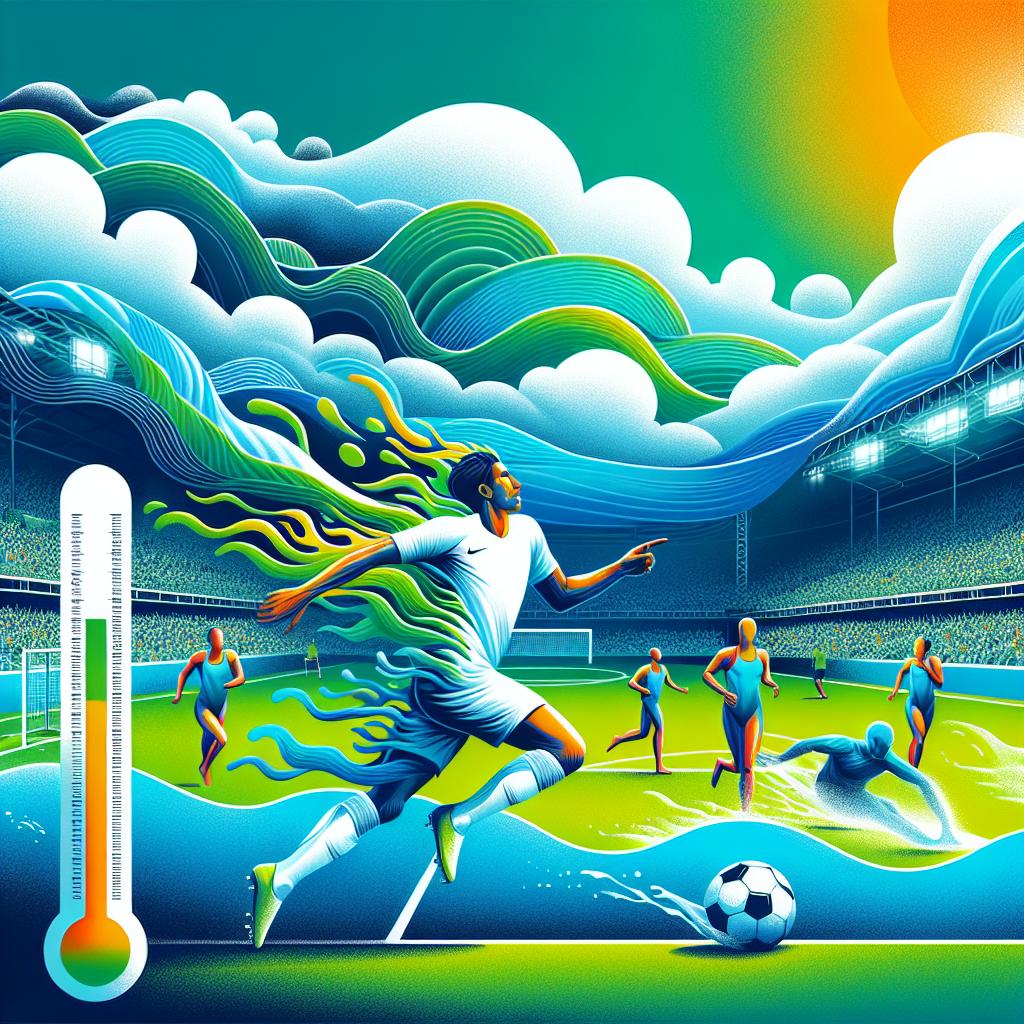-
Summary
- 2025-07-16 23:15

In recent times, climate variability has emerged as a critical factor influencing major international sporting events. For instance, the traditional timing of summer soccer World Cups is increasingly scrutinized due to heightened risks associated with heatwaves. Scientists emphasize that such climatic extremes can lead to severe consequences, including player health issues and broader event safety concerns. Consequently, this growing awareness may push governing bodies like FIFA to reassess their schedules, potentially moving away from peak summer months to mitigate the impact of global warming. Such strategic adjustments aim to ensure that athletes compete under more favorable environmental conditions, thereby safeguarding both participants and spectators.
Another pertinent example lies within the realm of aquatics where the World Aquatics Championships had to navigate challenges related to open water swimming events hosted at Sentosa. Initially, delays were prompted by substandard water quality, posing threats to athlete performance and event integrity. However, subsequent improvements in water conditions facilitated the resumption and successful execution of these competitions. Reporting entities such as Channel News Asia played a crucial role in documenting these advancements, underscoring the importance of maintaining stringent water quality benchmarks for sustainable sports event hosting.
Looking ahead, both scenarios reflect a broader trend: sports organizations must adapt to climate dynamics. Future strategies could involve developing robust contingency plans for dealing with unexpected weather patterns. Investments in infrastructure enhancements, particularly in regions prone to climatic fluctuations, will be essential. Moreover, fostering collaborations among scientific communities, sports federations, and local authorities can pave the way for innovative solutions tailored to specific regional climates. As global temperatures continue to rise, proactive measures will not only preserve the integrity of sporting events but also enhance the overall experience for all stakeholders involved.
Scientists have issued warnings about potential tragedies during summer soccer World Cups due to impending heatwaves. These extreme weather conditions pose significant risks to players' health and overall event safety. In another context, climate change might compel FIFA to reconsider its scheduling for future World Cups. This shift aims at mitigating adverse effects caused by global warming, ensuring safer environments for hosting tournaments.
The World Aquatics Championships have seen significant developments concerning open water swimming events held at Sentosa. Initially delayed due to concerns over water quality, there has been notable improvement in water conditions which allowed for the commencement of these competitions.
Both reports from Channel News Asia highlight the progress made regarding water quality standards necessary for hosting aquatic sports events successfully.